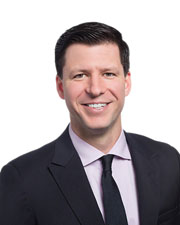
What to expect in the year ahead: Trends come and go, solid engineering principles must remain - by Jared Donnamiller
 Each new year presents an opportunity to anticipate the future. As we look to 2020, it is important to remember that while trends come and go, solid engineering principles must remain. At AKF, we call it “Engineering Leadership.” The ability to listen to our clients, inform them of their options, and discover ways to meet their needs today and tomorrow. Here’s what we expect in the year ahead:
Each new year presents an opportunity to anticipate the future. As we look to 2020, it is important to remember that while trends come and go, solid engineering principles must remain. At AKF, we call it “Engineering Leadership.” The ability to listen to our clients, inform them of their options, and discover ways to meet their needs today and tomorrow. Here’s what we expect in the year ahead:
Local Law 97 (LL97), the backbone of NYC’s ambitious “80x50” campaign to retrofit existing buildings and curb carbon emissions 80% by 2050, will continue to evolve in 2020 and fuel a larger national conversation about sustainability. The legislation is serving as a model for other urban centers—Boston and Washington, D.C. plan to introduce similar regulations this year, with other cities likely to follow. LL97 has undergone several important revisions impacting building owners, facility managers, and the design community, and it continues to be modified with regularity. An NYC Climate Advisory Board was appointed in December to optimize LL97 based on findings such as the impact of time-of-use (TOU) power demands and how carbon emissions are calculated. As the law continues to take shape, and new questions arise about the future of design and building management, it’s imperative for building owners and developers to look for forward-thinking and sophisticated solutions.
Carbon Trading, or Climate Efficiency Trading, is the sharing of energy efficiency credits between buildings within a city. Though the policy is not yet practiced anywhere in the world, it is currently in discussion with The Global Climate Efficiency Trading Initiative, a collaboration between councils in NYC and the peer cities of Hong Kong, London, Singapore, and Toronto to evaluate programs that will implement changes worldwide. The idea is that after a city implements carbon limits, a building that performs under the designated carbon cap can transfer their energy savings to a building that is unable to meet the given restrictions. Urban Green Council plans to release a report later this year based on initial research that will ultimately lay the groundwork for a pilot program in New York City. Climate Efficiency Trading has the potential to drastically reduce carbon emissions on a global level.
In October 2019, the New York City Department of Buildings issued carbon monoxide detection requirements regarding device installation and placement in existing businesses or mercantile buildings to coordinate with changes made by 2018’s Local Law 191. Depending on each building’s unique circumstances, modifications may also be required to the fuel-burning equipment in order to receive the required equipment shutdown signal from the fire alarm system when carbon monoxide is detected. Owners of affected businesses and buildings have until January 1st, 2021 to comply with the retroactive changes to these critical life safety devices, making 2020 the year for potential life-saving carbon monoxide detector updates.
Mission-focused commissioning that meticulously analyzes systems and provides practical solutions to intricate challenges has never been more critical to building performance than it is today. As technology advances, and systems and codes become increasingly complex, this ensures complicated systems run cohesively, offers a pillar of safety, and helps clients achieve unique goals. Commissioning should never be relegated to a simple “check-the-box” exercise.
Imagine being able to design and build something virtually to see how everything comes together before expending real-world resources. Digital twins create an exact virtual replica using data and algorithms instead of materials. While the concept for digital twins has existed for quite some time, the adoption of the Internet of Things (IoT) has made the use of digital twins more affordable. The transformative potential of digital twins is incredible. The technology has already been deployed in Formula 1 car racing to evaluate the performance and reliability of new parts. Building design isn’t far off. Ultimately, a digital twin provides designers and engineering teams with real-time information about how whatever they are creating will perform under a variety of circumstances.
Technology is thriving, sustainability is increasing, and as AKF begins a new decade, we believe there’s never been a better opportunity for “Engineering Leadership” to have a positive and lasting impact on the built environment. The best way to do something isn’t always the most obvious, and true ingenuity requires dedication and understanding.
Jared Donnamiller, PE, is a partner at AKF Group, New York, N.Y.